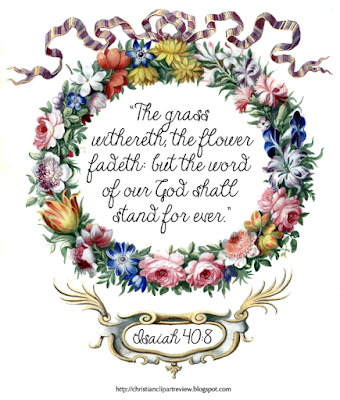"Neither will I offer unto the Lord my God that
which doth cost me nothing.'"
Within a crowded dwelling-place,
Climbing its narrow stair,
A little maid is toiling slow,
Who in her hand doth bear
A jug of water, which she guards
And holds with anxious care.
Slowly she climbs the stairway dim,
So narrow, steep, and high,
To where her little window looks
Out on a patch of sky;
And o'er a flower upon its ledge
She bends with loving eye.
The only treasure that is hers!
She dreams of it by night,
Guards it by day; the blue eyes watch
Its opening to the light.
Was ever lily seen before
So pure, so fair, so white ?
Soon, very soon, is drawing near
The blessed Easter Day,
When from a grateful, loving heart
We give our best away.
What offering could the dear child make?
She ponders day by day.
Such scanty earnings naught could yield,
From them she fears to take;
But there upon the window-ledge-
Oh! can she, can she make
Such sacrifice, and give her flower
For Easter - and His sake ?
The glad-voiced bells are chiming clear,
The dim-lit church is sweet
With font and chancel filled with flowers,
This Easter morn to greet,
When up the silent aisle there comes
A child with faltering feet.
Softly the notes from organ grand
Are stealing through the air;
Beneath the Altar's gleaming cross
She lays the lily fair,
And then all timidly she kneels,
And clasps her hands in prayer.
"Tis all I have," she murmurs low,
"Dear Lord, to give to Thee,
And so I bring this flower I love.
An offering from me;
For on this holy Easter Day
Thy child I pray to be."
Amid the throng at service hour,
In anthem, chant, and hymn,
One sweet voice rang, until it made
The older eyes grow dim;
They did not know what filled her heart
With gladness to the brim.
The best that it was hers to give,
That she had given away;
Not "that which cost her nothing," but
What nearest her heart lay.
Lord, grant that we may also give
Our best on Easter Day.







